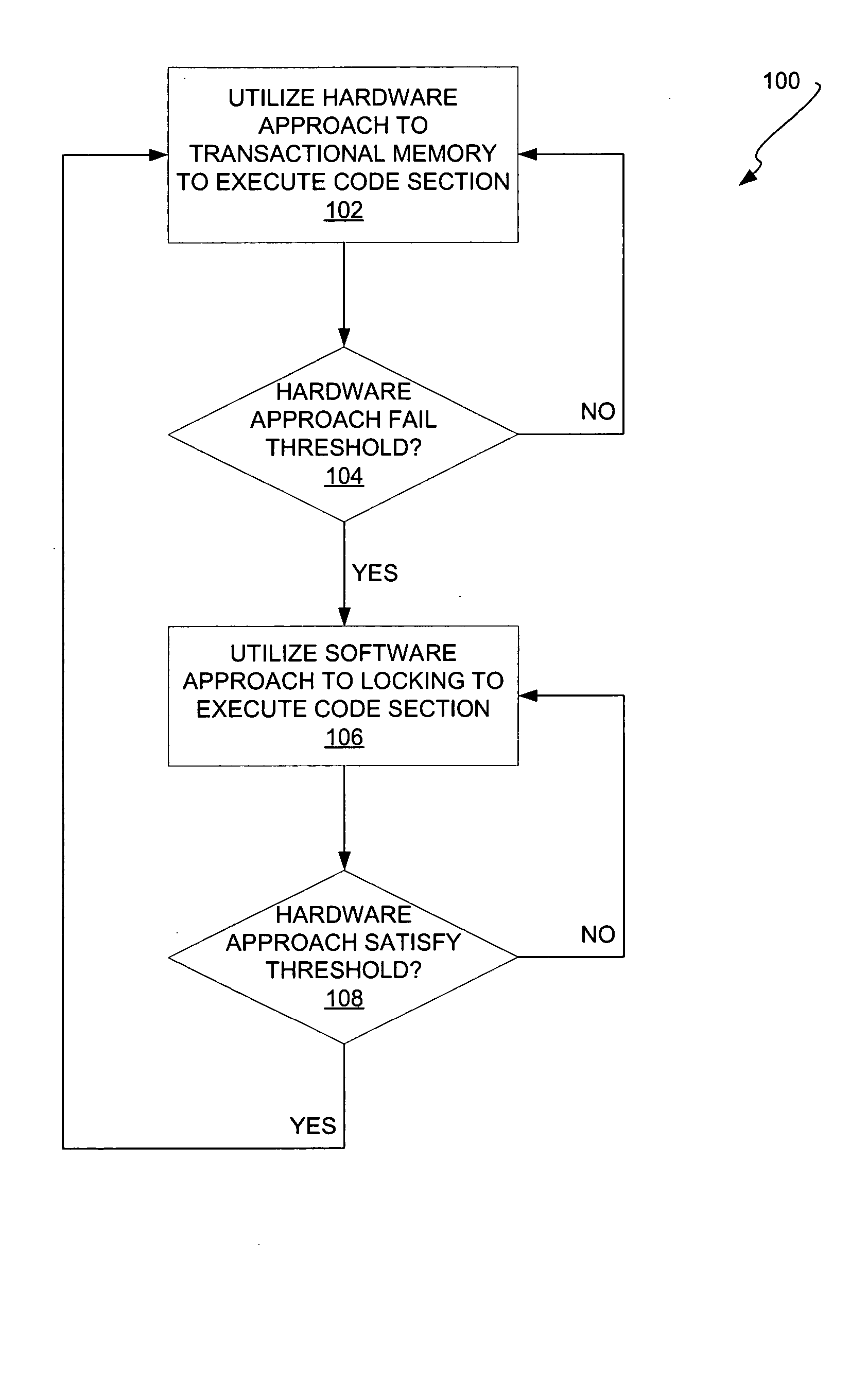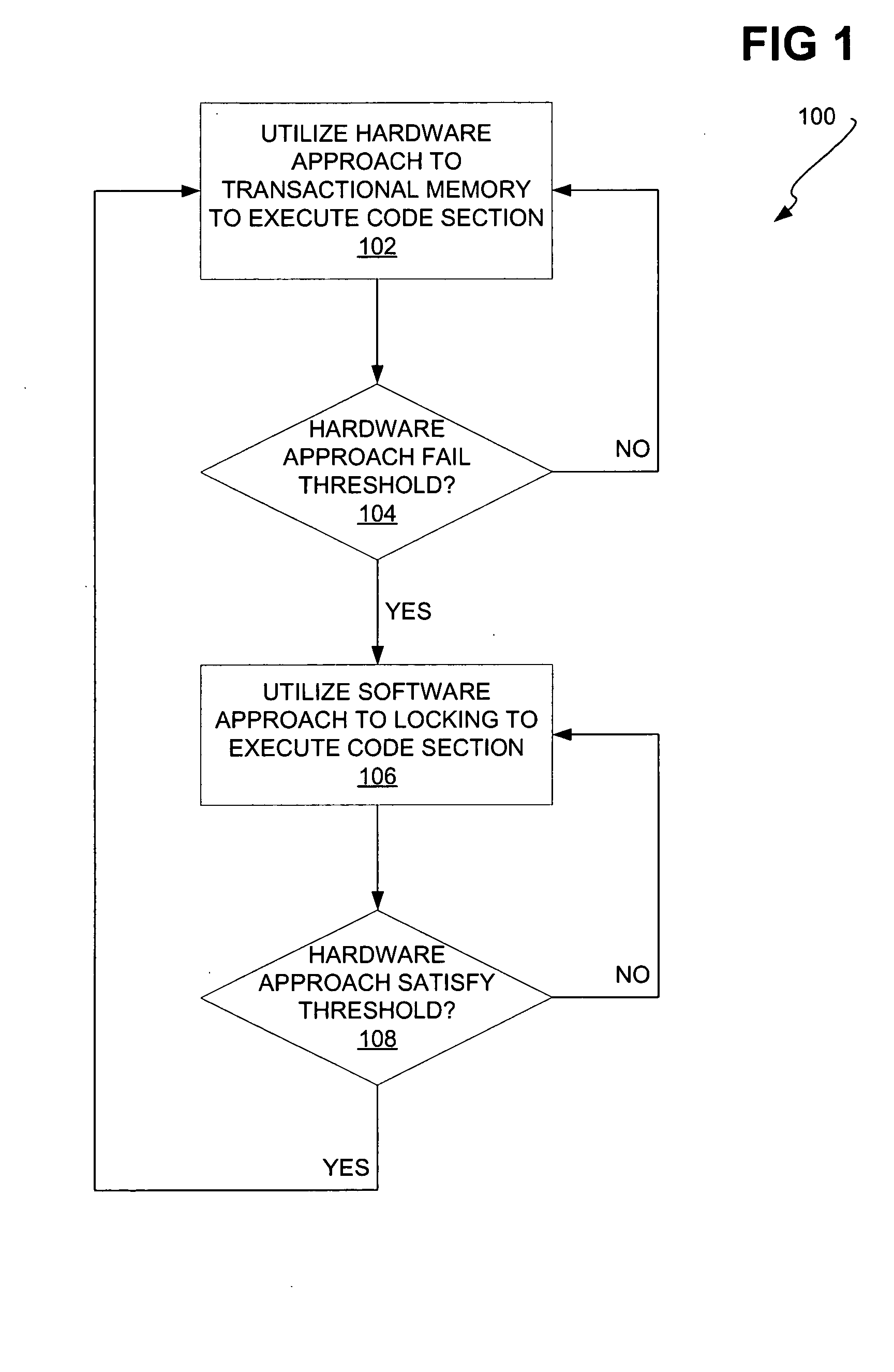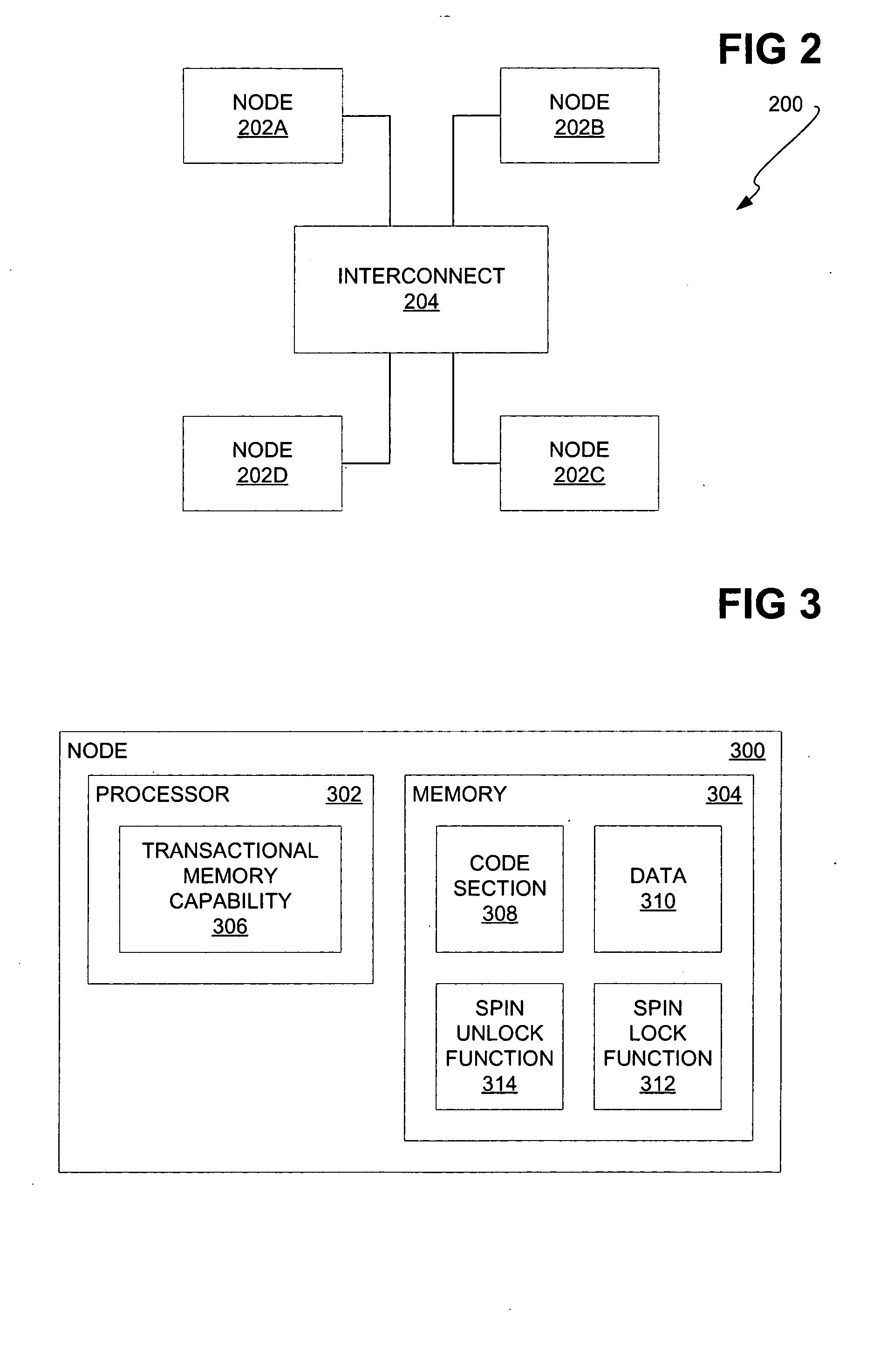Utilizing software locking approach to execute code upon failure of hardware transactional approach
a hardware transactional approach and software locking technology, applied in the direction of instruments, computing, electric digital data processing, etc., can solve the problems of affecting the performance of the entire system, adding overhead to the processing of transactions, and affecting the integrity of data stored in this memory
- Summary
- Abstract
- Description
- Claims
- Application Information
AI Technical Summary
Problems solved by technology
Method used
Image
Examples
Embodiment Construction
Overview and Method
[0017]FIG. 1 shows a method 100, according to a preferred embodiment of the invention. Like other methods of embodiments of the invention, the method 100 may be implemented as a computer-readable medium on an article of manufacture. The medium may be a recordable data storage medium, such as a magnetic, semiconductor, and / or optical medium, a removable or a fixed medium, and / or a volatile or a non-volatile medium. The medium may also be a modulated carrier signal. The method 100 may be performed by a processor of a node of a multi-node system that is to execute a section of code that relates to memory of the node.
[0018] A hardware approach to transactional memory is initially used to execute a section of code on an all-or-nothing basis (102). That is, the hardware approach to transactional memory is utilized such that either the entire section of code is executed and committed to memory, or none of the section of code is executed and committed to memory. The har...
PUM
 Login to View More
Login to View More Abstract
Description
Claims
Application Information
 Login to View More
Login to View More - R&D
- Intellectual Property
- Life Sciences
- Materials
- Tech Scout
- Unparalleled Data Quality
- Higher Quality Content
- 60% Fewer Hallucinations
Browse by: Latest US Patents, China's latest patents, Technical Efficacy Thesaurus, Application Domain, Technology Topic, Popular Technical Reports.
© 2025 PatSnap. All rights reserved.Legal|Privacy policy|Modern Slavery Act Transparency Statement|Sitemap|About US| Contact US: help@patsnap.com



